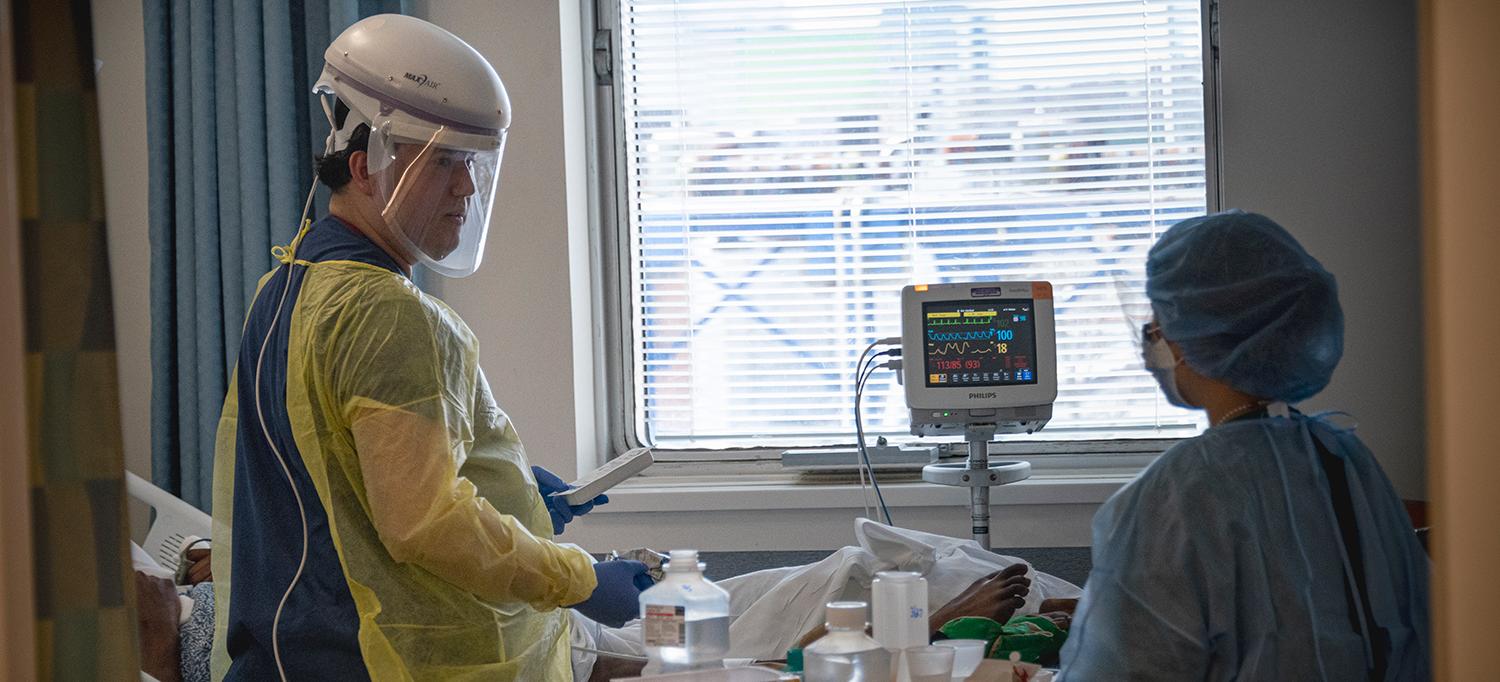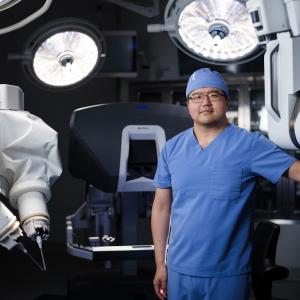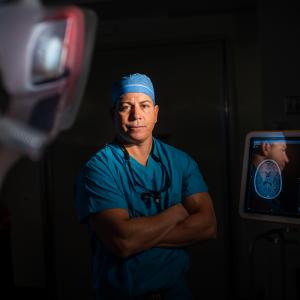The Comprehensive Transfer Center Ensures That Patients with COVID-19 Move Through the Hospital System Without Delay to Receive the Critical Care They Need

By the first week of April, about 180 patients with COVID-19 were admitted to our hospital system daily, a pace that required NYU Langone’s Comprehensive Transfer Center to be resourceful and adaptable in its workflows.
Photo: NYU Langone Staff
As news of a threatening 2019 coronavirus disease (COVID-19) outbreak in New York City intensified throughout March, 2020, so did people’s interest in Lisa Kesting’s job. “People didn’t really understand what I do, especially my mom,” says Kesting. “But when rumors started circulating that the city wasn’t going to have enough hospital beds, my whole family was like, ‘Wait, that’s what Lisa does.’”
As senior director of NYU Langone Health’s Comprehensive Transfer Center since 2019, Kesting oversees management of the hospital system’s patient flow through its emergency departments, procedural areas, and inpatient units. The accent is on the word “comprehensive.” Her responsibilities include transfers between NYU Langone locations, external transfers from other institutions, and the ever-shifting movement of patients throughout hospital beds. Not unlike a traffic cop, railway station master, or air traffic controller, her team’s mission is to ensure that there are no bottlenecks, whether it’s a delay into the operating room or out of the emergency department.
The transfer team works closely with nurse managers, medical directors, and their respective teams to facilitate bed management. “Our team has demonstrated outstanding adaptability,” says Kesting. “Their ability to swiftly update placement and admission workflows has ensured that patients receive the critical care they need, as quickly and safely as possible in this rapidly evolving environment.”
By the first week of April, COVID-19 inpatient admissions to the hospital system averaged 181 patients per day. Amid this surge of cases, the challenge of maintaining what Kesting calls the steady “drumbeat” of her job would be enough to make anyone in her shoes break into a sweat. But she was—and remains—confident that NYU Langone is in control despite the extraordinary circumstances. “We’re in the middle of a pandemic, but I actually feel that our leadership is very calm,” she says. “We had meetings back in the beginning of January, when there were under 1,000 confirmed cases in China. We’ve prepared for this as much as we could.”
NYU Langone has been able to manage its patient volume and flow effectively with a combination of good timing and great planning. Because the all-private patient rooms of Kimmel Pavilion could be adapted to isolate and contain known or suspected cases of COVID-19, the first waves of patients admitted in Manhattan were placed swiftly and safely. Moreover, inpatient units in Tisch Hospital that were vacated when the Kimmel Pavilion opened two years ago were restored and modified to accommodate patients with COVID-19. “We were fortunate that the Manhattan campus had that infrastructure in place,” notes Kesting. When NYU Langone postponed elective surgeries and procedures in mid-March, it converted empty surgical units into medical ones, reassigning and redeploying clinical staff as needed.
Kesting attributes the success of NYU Langone’s efforts to top-down management at its best. “The calm tone set by leadership has really helped keep this institution going at this level,” says Kesting. “Through this whole process I’ve been in awe of the collaboration and communication among teams. It’s not a scary doomsday that’s happening. You know, I feel like we’ve got this.”

